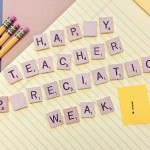What if we were given the opportunity to work only on those things we are good at doing?
What if our schools encouraged students to focus on activities that they were able to successfully execute merely because these activities brought them extreme joy?
What if we asked students to reflect on what they want to improve in their learning?
These were the questions that came to my mind as I was reading a column in the Az K-12 Homeroom called “Centered: Education Insights from Arizona K12 Center Leaders.” In this article, the executive director of the Arizona K12 Center stated, “…I started to wonder where in our school system we can accommodate such raw talent? I quickly realized that with talent of this magnitude I don’t think we can. But, it also reminded me that every child has a gift and it is our job to help unwrap it, nurture it, and support it…” She was referring to a child prodigy by the name of Joey Alexander. As educators, we can work with parents to truly unlock and discover our students’ strengths. Knowing this information can help our scholars determine what activities will bring them the most success, and it can truly help teachers tap into that raw talent! As alluded to in this K12 article, how often do we miss opportunities in our classroom to develop, nurture and harness certain talents our students may possess? At times, we get so caught up in and consumed by test scores. We also start to create our own (possibly unhealthy) definitions and perceptions of these buzz words in education like “rigor.” In a previous blog on rigor, Jess Ledbetter wrote, “…to skill and drill as we do now. It began with no child left behind. What I have seen are many children being left behind because we ignore their natural development and learning styles and push them on with so many holes and gaps and only an ability to regurgitate information…I think rigor has gone way too far…Perhaps we need to carefully examine and redefine what “rigor” means in our schools.”
How many hidden gems like Joey Alexander do we have in our classrooms? How do we know if they even exist? If we, as educators, don’t stop to reflect on how we can best nurture the talents of our students, then who will? It starts with us! If we don’t start challenging the status quo, or even reexamining what we mean by rigor, then these student strengths and talents will go underdeveloped and undiscovered. We have the power to help our scholars uncover their talents and then build up and reinforce those talents. One way to do this is through the growth mindset. I have always been a big advocate and believer in the growth mindset model. In a fixed mindset, scholars believe that their abilities are dependent on fixed traits that cannot be changed such as talent. When our students have a fixed mindset, they often create a self-defeating identity and feel powerless; this creates a sense of learned helplessness. On the other hand, scholars with a growth mindset accept that abilities and aptitude can be developed with persistence and effort. As teachers, it is imperative that we discover what motivates our youth and integrate it into the curriculum. Then, we must share our own enthusiasm and excitement on the topic.
In a wonderful Educational Leadership article on developing student talent, author John F. Feldhusen writes, “teaching basic skills and subject matter—the fundamental duties of teachers—can be abundantly satisfying if done creatively and successfully. But finding and nurturing special talents in children and youth, and seeing those students and their talents blossom, are among the great joys of teaching. In fact, our task in school should be to do both—to teach basic skills well and as early as possible, and to identify and nurture students’ strengths…Teachers and counselors at all grade levels and in all areas must do a better job of identifying and developing the talents of students with average and low potential, as well as those with very high potential.”
One way, I like to develop and nurture raw talent in my classroom is through self-directed projects. These reading projects help my scholars discover their interests and passions. One way I have used this concept more frequently (on a smaller scale) is through “Scholars as Researchers.” The idea behind it is simple; I use three straightforward steps to spark talent:
- I ask a driving question
- Task the scholar with researching it
- Scholars find a way to share the learning with others
This is where I see sparks and creativity fly because each child becomes very passionate about an issue they feel strongly about, and then they have their own unique way and style of sharing their findings with the class. The possibilities are limitless! I had one scholar who actually created his own “newscast” because he enjoyed making videos on YouTube. He wants to be a videographer when he gets older. This is also a great way to model and introduce “Genius Hour” to your students (a student-centered strategy that enables students to explore their own passions and encourages creativity in the classroom).
In order to find out more about the gifts and talents of my scholars, I also use journaling. Journals allow my scholars to write and create. Unfortunately, journals are often used only for writing about teacher-assigned topics. However, giving my scholars a choice over the topics they write about is a great motivator and provides them with an opportunity to explore their learning styles and talents.
Student strengths and talents are discovered and nurtured by the adults around them. Helping scholars realize their talents is a great way to boost engagement and confidence. We have to be mindful of never missing the opportunity to let our students see their brilliance!
Are you cultivating and nurturing talent in the classroom? What are your thoughts on this issue?










Comments 2
This is the way we honor kids for what they bring and support who they are as individuals. Raw talent takens practice and when we give kids some room to bring that talent into our space, we allow them to grow!
Great post, Treva! I’ve started using self-directed “Passion Projects” for students who demonstrate mastery of ELA concepts and standards on pretests and it has been amazing! I love honoring their interests and talents.